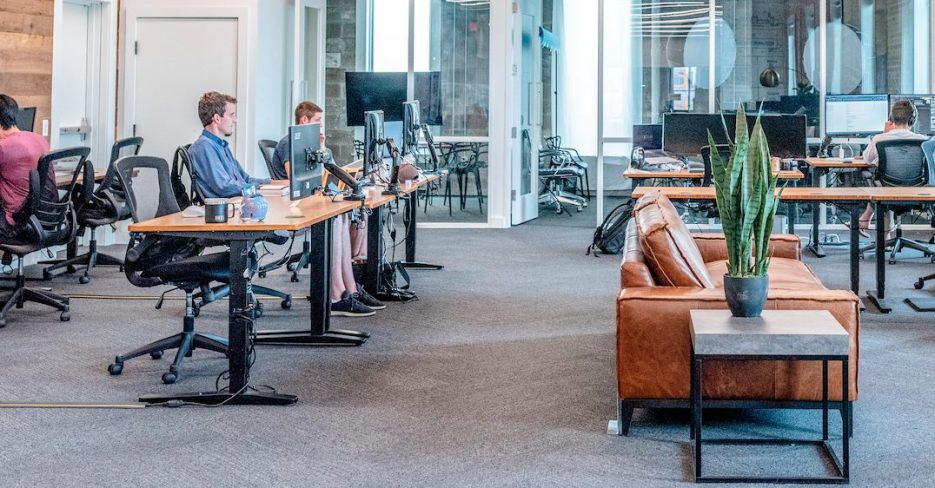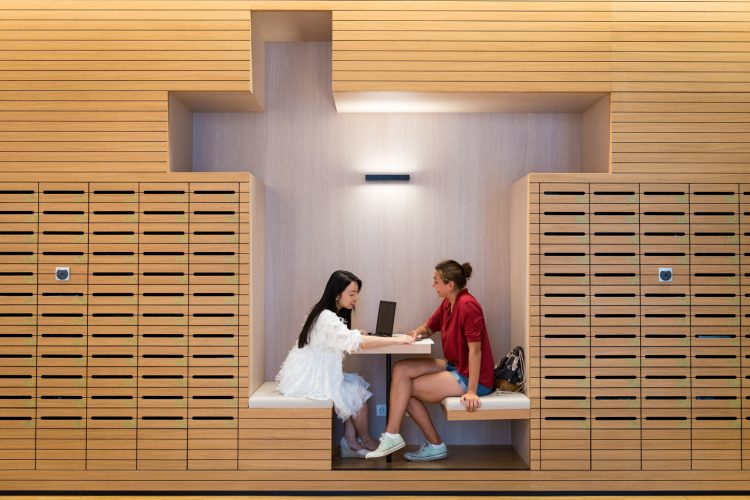During these difficult times, people all around the world were forced to switch from working in-office to home office. Switching from sharing desks with coworkers in a crammed office space to working in your pyjamas from bed sounds like the dream to most people. According to Statista.com, as many as 45% of Austrians worked from home at some point during the COVID-19 crisis. But is it really all that it’s made out to be or are there some downsides too?
For a lot of people, one of the biggest pros of working from home are the reduced expenses. Firstly, you don’t need to spend money on transport. Secondly, if you tend to buy your lunches out during the week, home cooked meals will generally be cheaper than the average company canteen. When it comes to work-related costs and expenses, it’s home office for the win!

Working in an office with dozens of other people can be stressful and this can often cause tension between coworkers. When this leads to a face to face disagreement, a little distance can often ease the situation or prevent it from escalating at all.
In the comfort of your home, you will be much more relaxed and any disagreements can be communicated then forgotten via the good old classic ‘passive-aggressive’ email ? .
More than 50% of Austrians spend between an hour to two hours per day on their commute to and from work. When you think of what you could do with two extra hours a day, the possibilities seem endless! Whether you use that to enforce some ‘me-time’ or get in a quick daily workout, it’s bound to have a positive effect on your mental health. If you choose to spend that time lying in bed a little longer in the mornings- no one is there to judge you.
Home office was introduced in a lot of companies for the first time this year in response to standards set by the government, in regards to the health and the general well-being of the population, particularly during a pandemic. The flexibility of home office reduces the risk of individuals who are feeling unwell from possibly infecting their colleagues as well as infecting other members of the public in shared spaces, especially on public transport.
Now, let’s talk some downsides. We can all get distracted at work and working remotely can sometimes present an additional challenge. If you’ve got family members popping in for a chat every few minutes, or someone watching TV really loudly in the next room, then say goodbye to your concentration. Having to get a work-task done that you’ve been avoiding? You may decide that cleaning your ‘dirty’ kitchen is suddenly a top priority or watching the last episode of that show you’ve been binge watching in the background will surely help you complete your task faster.
If you sometimes find yourself having communication issues with your team, the lack of a protocol, which relates to remote-working, can often be a hard situation to navigate. Though it may be easier for smaller businesses to remain connected and on top of things, larger companies may struggle with issues such as information flow, appointment coordination and task assignment. With the lack of personal contact, miscommunications are more likely to occur. Additionally, team morale may suffer if you find yourself solely interacting with a blurry Zoom picture or stone-cold emails. It’s also easy to underestimate the advantage of being able to closely work with other members of a project in the same room, especially when it comes to brainstorming.

If you are the type to stay in your pyjamas and ‘forget’ to brush your teeth when working remotely, this environment can often prove to be a little demotivating. Maybe you need a nosy colleague to look over your shoulder to be your most productive self or your superior to give you a pat on the back with some kind words of support. Depending on your sense of self- discipline, home office may not be for everyone.
If you are working in an office every day, the boundaries between work and private life are often clear. There are set times in which you are expected to be available and complete a certain number of tasks- the rest is fair game! Once you set foot outside of that office, you can pretty much wind down and forget about work until tomorrow. However, those who have been working remotely for longer periods of time, found it much harder to unplug after work due to the lack of a physical separation. In addition to the more flexible working hours, individuals might find themselves ‘on-call’ all day in order to better align with other people’s individual appointments or schedules. This leave no place for that work-life balance we all strive for.
At the end of the day, remote- working is what you make it out to be. Everyone is built differently and has different needs and what works for one individual may not work for another. How this pandemic has changed the ways in which we work remains open and interesting.